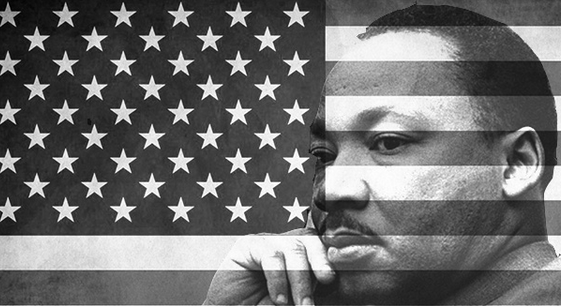Published: 6 March 2014
Countries: US and UK

 When 84 per cent of the prime-time guests of CNN, MSNBC and FOX are white, Black History Month seems to be a good opportunity for raising the issue of diversity and representation in the media.
When 84 per cent of the prime-time guests of CNN, MSNBC and FOX are white, Black History Month seems to be a good opportunity for raising the issue of diversity and representation in the media.
Black History Month is celebrated in February mainly in the US, but also in Canada and the UK in order to remember and to honour the African culture, key figures and significant events for Africans and the diaspora.
But some have questioned the necessity of the events like Black History Month in a “post-racist” era. Black History Month has no actual value and that young people already know about the achievements and historical highlights of African-Americans. There are others who insistthat remembrance month stands as a ‘tangible opportunity to address the disproportionality’and racial disparities of the country.
Media, trying to present such inequalities, fall in a fundamental trap, claims the US-based research centre Race Forward. According to their recent research “Moving the Race Conversation Forward”, about two out of three articles on race and racism failed to include a systemic-level perspective on racism. New York Times and Washington Post are the ones that demonstrated higher rates of systemically aware content when compared with local papers and with CNN and Fox News programs.
Media focus on personal-centre stories regarding racism without including the systemic racism factors in their coverage. News and journalistic stories on race and racism are usually related only with individuals and they fail to point out the weaknesses of the system and the state’s policies and practices to guarantee a society of equal opportunities and justice. Thus, media gives an impression that the racist incidents are isolated and caused only by personal prejudice and individual-level racism and not because of wrong and inefficient policies as well.
Same research has also identified a number of harmful racial media discourse practices such as the isolation of facts from their historical background, focus on policies’ intentions than on their real impact and the depiction of government efforts to promote racial equity and inclusion as misguided and unnecessary. One of the conclusions of the research done assessing US media is that media usually refer to racism in the past tense, implying that is an obituary and obsolete phenomenon in modern American society.
[If you are interested, please find the whole research here.]
Fox Channel has been criticised for its biased coverage of murders during 2013, when channel’s journalists have been highlighting the black crime rates and manipulated relevant statistics focusing only to “black on white” crimes toll. A video, made by Media Matters for America, has gathered some of the highlights of the Fox stereotypical coverage including phrases like “An alienation of young black men in this country [happens] for a number of reasons but primarily because they are angry, they don’t have a family and their father abandoned them and all that”.
Apart from Fox Channel, very often attributed with unbalanced reporting, PolicyMic portal finds that in general, white young people are treated more favourably by the media than their black peers. One of the examples is reporting on Richard Sherman, former high school salutatorian, graduate of Stanford University, and professional athlete who made an unsportsmanlike speech. Next day, the word “thug” was used 625 times by local TV and radio stations during discussions about this incident. That provoked the well-known American TV host Jon Stewart to wonder if ‘has anybody heard Justin Bieber characterised as thug too because of his indiscretions’.